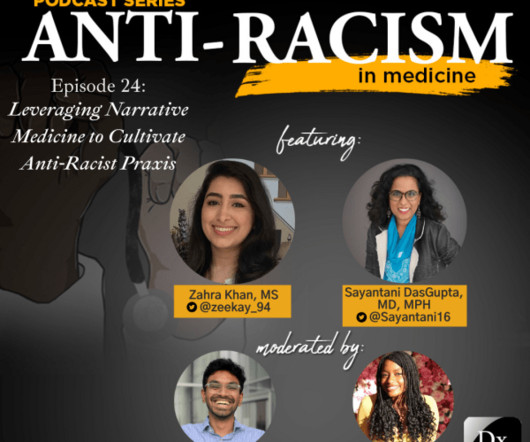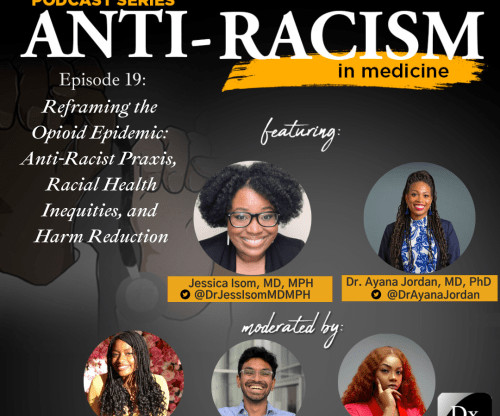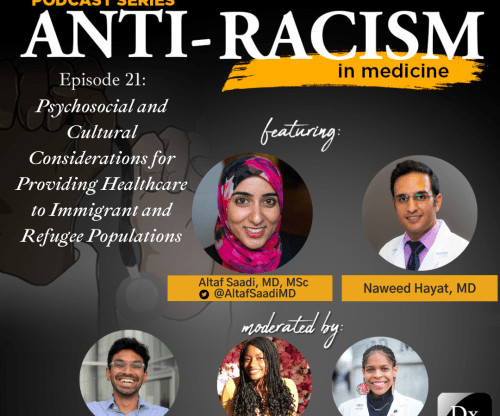Episode 322: Antiracism in Medicine – Episode 24 – Leveraging Narrative Medicine to Cultivate Antiracist Praxis
The Clinical Problem Solvers
MARCH 4, 2024
Episode Learning Objectives After listening to this episode, learners will be able to: Illustrate the relationship between narrative medicine and healing relationships. What the term gestures towards is the centering of the ‘story’ in healing relationships. The show notes for this episode were written by Sudarshan Krishnamurthy.











Let's personalize your content